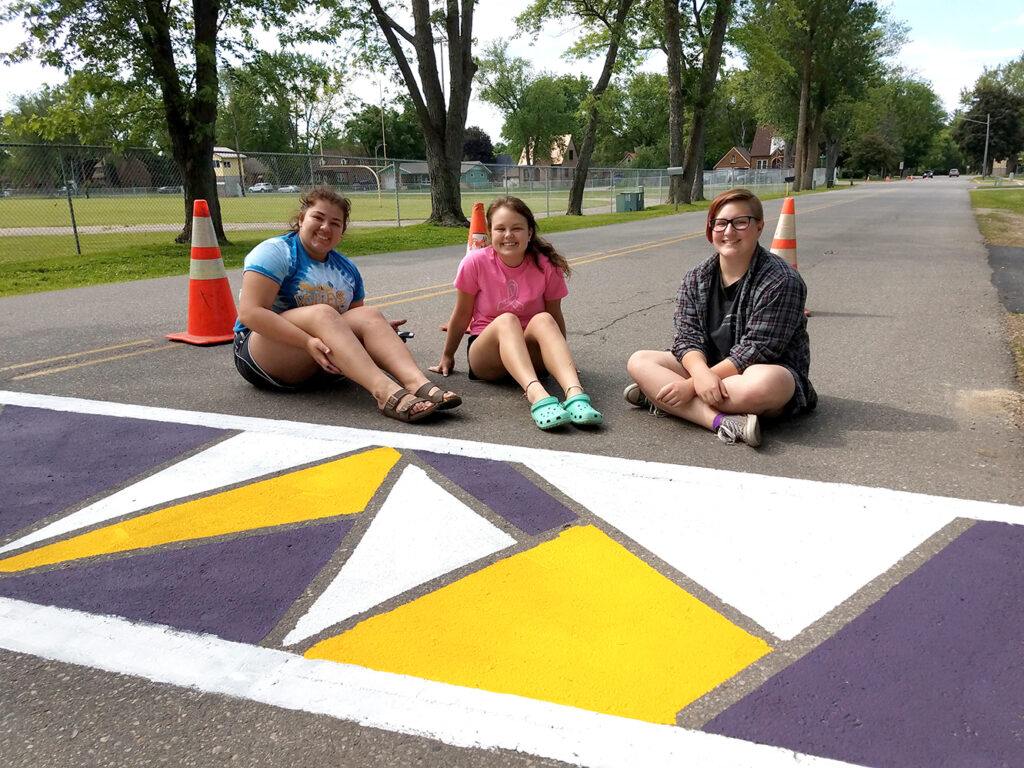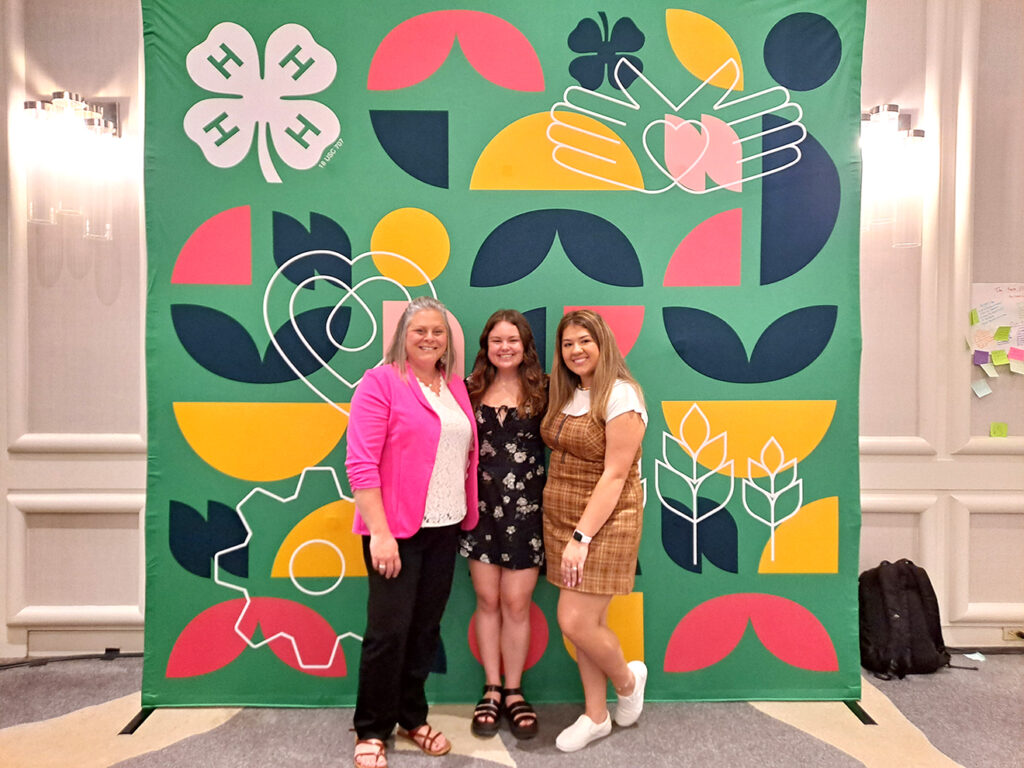
Desiree Torres understands the value of being part of a supportive environment that encourages young people to be involved in their communities, something she witnessed firsthand with Youth Advocates for Community Health (YACH), a program of UW–Madison Extension.
Christa Van Treeck, associate professor and youth development educator in Marquette County, is working with a group of students, including Torres, to develop a creative crosswalk program, which is designed to increase physical activity and pedestrian safety while also incorporating a sense of place through memorable design.
The students observed that entrances to parks and hiking trails did not have adequate crosswalks and believed that more people would utilize these spaces if they could access them more safely. The students met with Montello’s Public Safety Committee to discuss their plan to paint two crosswalks, which they designed. After securing approval from the City Council, the students painted the crosswalks and planned an event to showcase them to community members. This work follows projects across the country showing that art installations can make streets safer and reduce crashes.
This group of students also received a $5,500 grant to revitalize 10 bike routes throughout Marquette County, which have not been meaningfully changed in 20 years. Upgrades include updated routes, the addition of trail heads and QR codes to help with navigation.
“I really enjoy working with YACH, because it allows me to make a difference at an age where most young people feel helpless,” Torres said. “This group made me feel empowered at a very young age.”

YACH creates partnerships between young people and adults who support young people to work to improve their communities’ health in ways that matter to them.
“Young people really hold the key to the future of our communities,” Van Treeck said. “Involving young people is necessary in having healthy, vibrant communities today and in the future.”
Young people have a strong sense of what’s happening in their communities, according to Van Treeck, which helps them recognize when a particular issue is not being addressed. “Just because they can’t vote doesn’t mean they can’t leverage their social capital,” Van Treeck said.
What sets YACH apart from other youth leadership programs is the fact that participants get to decide which project(s) they would like to pursue. In other programs adult supervisors have already set the agenda, according to Laura Apfelbeck, FoodWIse nutrition coordinator in Manitowoc County.
Apfelbeck worked with a group of students in Manitowoc County who focused on improving school lunches. The students surveyed their peers and ultimately decided to offer smoothies made with fresh produce. Students met with food service providers, sampled different flavor combinations and ultimately applied for a grant to purchase the blenders. The goal was to offer smoothies once a month, but the school offered them weekly due to such high demand.
The same group of students worked with a community meal site in Manitowoc that served 200 people a week at the time (Manitowoc’s population is nearly 35,000). Students discovered that the food being offered was high in carbohydrates and sodium, so they decided to build a community garden to supply the site with fresh produce, which members from Wisconsin 4-H, Master Gardener and other Extension programs helped to maintain. The garden has since been expanded multiple times and is still being used.
YACH focuses on creating community changes that provide all individuals with access to healthy choices and develops learning opportunities for young people through cross-disciplinary collaboration. As a result, YACH contributes to the increase in skills and knowledge of young people and empowers them to be advocates for change in their communities.
Participants report improved social confidence and communication skills, as well as an understanding of health and health equity. Additionally, participants report that they build meaningful relationships with peers and adult leaders, who make participants feel like their voice matters.